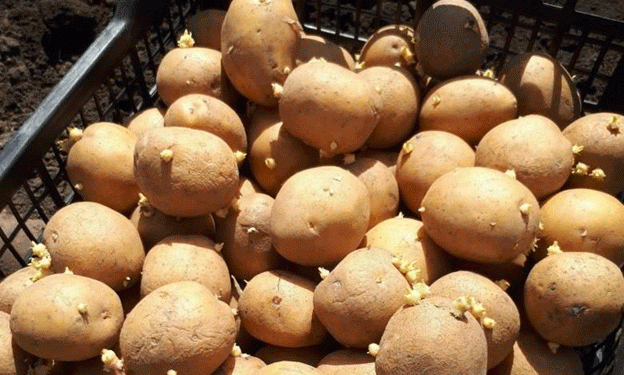More than 1,600 hectares of agricultural land in Perm Krai, Russia, have been placed under quarantine following the detection of golden potato cyst nematode (Globodera rostochiensis). The pest poses a serious threat to potato production, with potential yield losses reaching up to 90%. Strict containment and eradication measures are now in force to protect surrounding agricultural zones.
Golden Nematode Crisis Hits the Perm Region: Over 1,600 Hectares Affected
On March 27, 2025, the Rosselkhoznadzor Office for Kirov Region, Udmurt Republic, and Perm Krai officially updated the quarantine phytosanitary zones in response to the spread of the golden potato cyst nematode—a highly destructive soil-borne pest. According to the new directive, more than 1,600 hectares of agricultural land in Perm Krai are now under quarantine restrictions.
The golden nematode (Globodera rostochiensis) is a microscopic roundworm that parasitizes the roots of solanaceous crops, including potatoes, tomatoes, and eggplants. Although harmless to humans, this pest can cause catastrophic damage to crop yields. Infected plants exhibit stunted growth, poor flowering, yellowing lower leaves, and drastic reductions in tuber formation.
Yield Losses and Impact on Potato Production
Yield losses due to golden nematode infection average 30%, but in severe infestations can soar to 90%, according to data from the Food and Agriculture Organization (FAO) and the European and Mediterranean Plant Protection Organization (EPPO). For a region like Perm Krai, where potato farming is a key sector, this represents a major economic and food security concern.
In 2023, Russia ranked among the top five global producers of potatoes, with a total output of over 18 million tons, and the Ural and Volga regions contributed significantly to that figure. A large-scale outbreak in a region like Perm could ripple across national supply chains, especially given the tight market following 2024’s underwhelming harvest.
Quarantine Measures in Effect
Authorities have outlined the following strict phytosanitary measures for the affected areas:
- Prohibition of using locally grown potatoes for planting
- Ban on planting solanaceous crops (potatoes, tomatoes, eggplants) until the pest is eradicated
- Mandatory laboratory testing and electronic quarantine certification before any shipment of potatoes outside the zone
- Intensified soil disinfection and crop rotation programs to reduce nematode populations
The official quarantine map, control programs, and lists of restrictions and responsibilities are available on the regional Rosselkhoznadzor website. Local agronomists and farm managers are urged to consult the site regularly and comply with all biosecurity protocols.
The discovery of golden potato nematode in over 1,600 hectares in the Perm region is a stark reminder of the vulnerabilities facing modern agriculture. With potential crop losses of up to 90%, the need for early detection, rapid containment, and long-term soil health management has never been more critical. For farmers, agronomists, and agricultural scientists, the current outbreak offers both a challenge and a call to action in advancing integrated pest management strategies.







